Detroit's rise and fall — and rise?
America's 'Motor City' slid from industrial and cultural powerhouse to cautionary tale. Is it finally on the upswing?

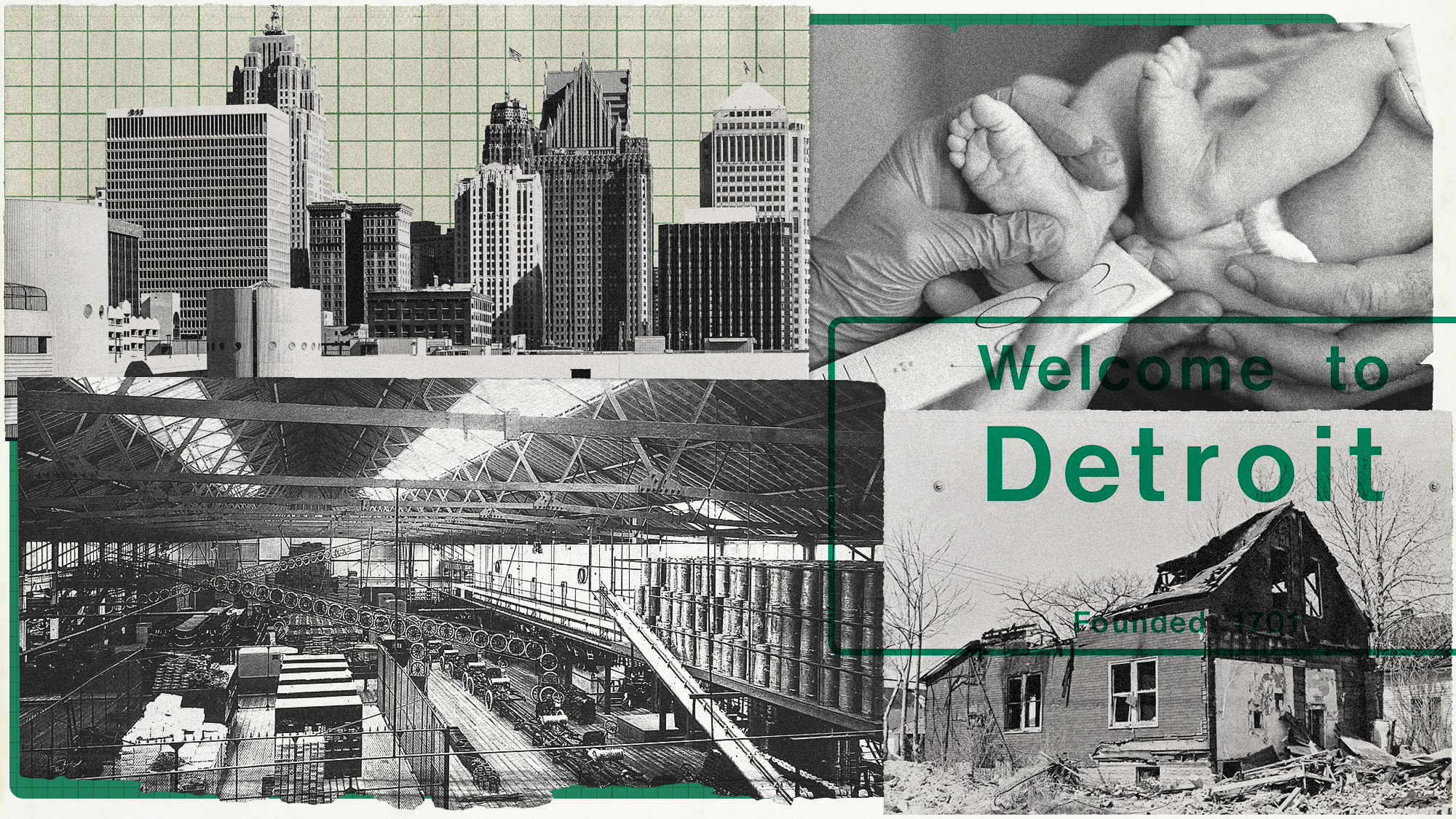
A free daily email with the biggest news stories of the day – and the best features from TheWeek.com
You are now subscribed
Your newsletter sign-up was successful
Detroit, a city of square pizzas and round wheels, the arrhythmically beating heart of the American auto industry and the home of Motown, a record label so influential it became a genre, its name a nod to its "Motor City" roots. Detroit is also a shadow of its former glory, an emblem of white flight and urban blight, the largest U.S. city ever to file for bankruptcy. But in 2024, an unremarkably remarkable thing occurred: the Census Bureau recorded Detroit's first official population growth in decades. Here's a look back at the rise of one of America's great cities, its fall and its possible rebirth.
July 24, 1701
Antoine de La Mothe Cadillac established a French settlement, Fort Ponchartrain du Détroit (the strait), along with 100 French soldiers and an equal number of Algonquins.
The Week
Escape your echo chamber. Get the facts behind the news, plus analysis from multiple perspectives.

Sign up for The Week's Free Newsletters
From our morning news briefing to a weekly Good News Newsletter, get the best of The Week delivered directly to your inbox.
From our morning news briefing to a weekly Good News Newsletter, get the best of The Week delivered directly to your inbox.
1760
Britain won the city from the French.
1796
U.S. forces captured Detroit from the British.
A free daily email with the biggest news stories of the day – and the best features from TheWeek.com
Feb. 1, 1802
Detroit became a chartered city, covering about 20 acres. It was incorporated as a city of Michigan territory in 1806, unincorporated in 1809 then reincorporated in 1815, this time for good. The population in 1815 was about 850.
1827
Detroit adopted its forward-looking city motto: "Speramus Meliora; Resurget Cineribus" (We hope for better days; it shall rise from the ashes).
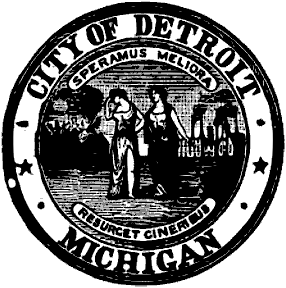
1850
Bernhard Stroh opened Stroh Brewery Company. Over the next 150 years, Stroh's acquired several rival brands, including Schaefer, Schlitz, Old Milwaukee, Lone Star and Colt 45.
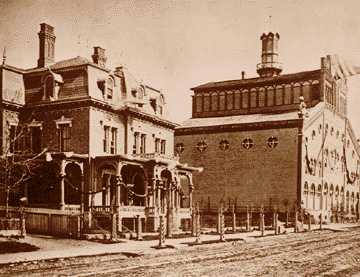
The Stroh Brewery Company, circa 1864
June 4, 1896
Henry Ford test-drove his first automobile on the streets of Detroit.
1898
Ford established the Detroit Automobile Co., producing all of two cars before the company failed three years later.
1899
Ransom E. Olds opened Detroit's first auto manufacturing plant.
Nov. 3, 1901
Ford opened his second car company, Henry Ford Co. Ford left the company in August 1902, and it became the Cadillac Motor Co. Detroit was America's 13th biggest city, with a population of about 286,000.
June 16, 1903
Ford started the Ford Motor Co. in Detroit; among the 12 initial investors were brothers John and Horace Dodge, who started manufacturing their own Dodge cars in 1915. Ford soon moved his operations to the suburb of Dearborn. (The company hasn't built a car in Detroit since 1910.)
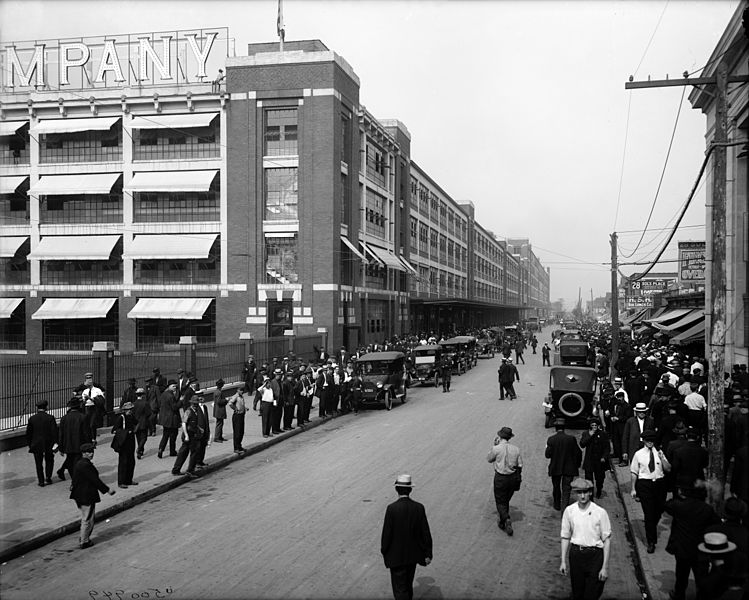
Shift change at the Ford factory in Detroit, circa 1910
Sept. 16, 1908
William Durant and Charles Stewart Mott founded General Motors in Flint, as a holding company for Buick. (Today, GM is the only one of the major U.S. automakers headquartered in Detroit proper.)
June 6, 1925
Walter Chrysler started the Chrysler Corp. in Detroit. Chrysler moved its headquarters to Auburn Hills, a Detroit suburb, in 1996, and the company merged and rebranded as Stellantis in 2021.
1950
Detroit's population hit 1.85 million, making it America's fourth-largest city, with 296,000 manufacturing jobs.
1958
The 3,500,000-square-foot Packard Motor Car Co. factory in Detroit — opened in 1903 — was shuttered. It is now slowly being demolished.
"For 68 years, the ruins of this building have been a weight around the neck of Detroit’s recovery," Detroit Mayor Mike Duggan said in March 2024, promising to transform the area into a "vibrant employment center."
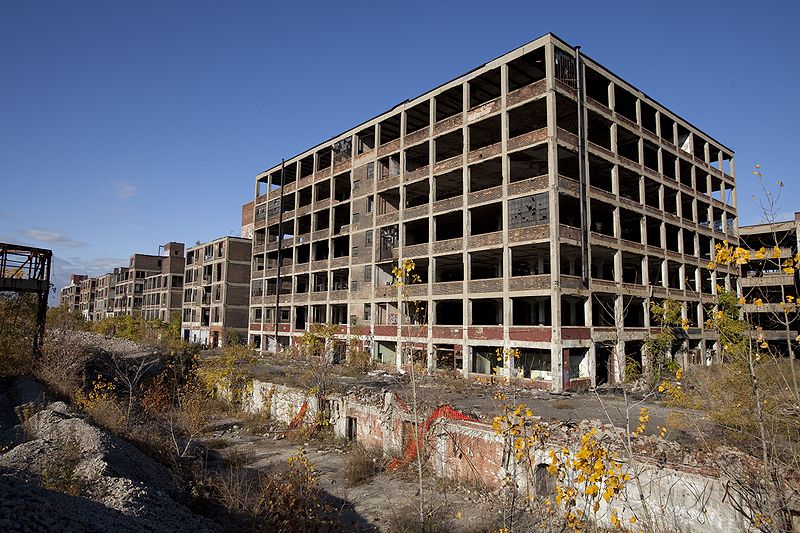
The crumbling Packard plant, in October 2009
1959
Berry Gordy founded Motown Records. He named the record company's center of operations — a two-story house at 2648 West Grand Boulevard — "Hitsville USA." And he wasn't exaggerating. Motown artists including the Supremes, the Temptations, Martha and the Vandellas, Marvin Gaye, Stevie Wonder and the Jackson 5, collectively scored 120 Top 20 singles in the 1960s, changing the direction of popular music.
July 23-28, 1967
The Twelfth Street riot, one of the biggest in U.S. history, pitted inner-city Black residents against police, then National Guard troops sent in by Gov. George Romney and Army soldiers deployed by President Lyndon B. Johnson. In five days of rioting, 43 people were killed, 467 injured and more than 7,200 arrested. Some 2,000 buildings were destroyed.
1973-74
High gas prices spurred by a Middle East oil embargo helped give smaller, more fuel-efficient foreign-made cars a toehold in the U.S., starting a long period of crisis for Detroit's Big Three automakers.
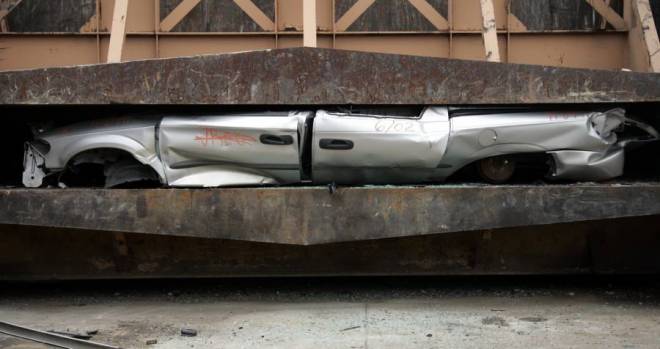
A vehicle is crushed at U.S. Auto Supply in Detroit on August 3, 2009
1974
Detroit elected Coleman Young its first Black mayor. He served until 1993.
July 1992
Moody's cut Detroit's debt rating to junk status.
1994-2001
Under Mayor Dennis Archer, the city's credit rating rose to a solid investment grade, on the back of a bout of urban renewal.
1999
Stroh's Brewery Company was sold to Pabst and Miller, with its brands either divided between the two breweries or discontinued.
2002-2008
Under Mayor Kwame Kilpatrick, the city's credit ratings started to slide back into junk territory.
September 2008
Kilpatrick pleaded guilty to obstruction of justice charges and left office.
December 2008
President George W. Bush approved a provisional $17.4 billion bailout for GM and Chrysler.
May-July 2009
Chrysler and GM declared bankruptcy, and the Barack Obama administration provided financing and guided the automakers through expedited bankruptcy proceedings.
March 2011
The U.S. Census Bureau reported that Detroit's population had fallen to 713,777, a 25% plummet from 2000 and the lowest level in 100 years. Detroit's finances were premised on a minimum tax base of 750,000 people.
December 2012
Gov. Rick Snyder signed a law allowing financially struggling local governments to choose between mediation, a deal with the state, a state-appointed emergency financial manager or Chapter 9 bankruptcy.
Feb. 19, 2013
A state review board appointed by Snyder decided that Detroit was in "operational dysfunction," unable or unwilling to restructure its finances, and needed intervention from the state.
July 18, 2013
Kevyn Orr, a restructuring specialist appointed by Snyder as Detroit emergency manager, filed a Chapter 9 bankruptcy petition on behalf of Detroit, marking the largest municipal bankruptcy filing in history and sending the Motor City into unknown territory.
October 2013
Kilpatrick was sentenced to 28 years in federal prison on 24 felony counts, including mail fraud, wire fraud and racketeering.
Nov. 7, 2014
A federal judge approved Detroit's bankruptcy plan, wiping out about a third of its debt — $7 billion — while cutting retiree pensions 4.5% and shifting ownership of the city's valuable art museum, the Detroit Institute of Arts, to a special charitable trust.
January 2021
President Donald Trump commuted Kilpatrick's sentence.
May 16, 2024
Mayor Mike Duggan announced that, according to new Census Bureau data, Detroit gained a net 1,852 residents from July 2022 to July 2023, marking the city's first official growth since 1957. With a population of 633,218, Detroit was now the 26th most populous U.S. city, up three notches from a year earlier. "This is a day of celebration," Duggan said to The Detroit News.
Peter has worked as a news and culture writer and editor at The Week since the site's launch in 2008. He covers politics, world affairs, religion and cultural currents. His journalism career began as a copy editor at a financial newswire and has included editorial positions at The New York Times Magazine, Facts on File, and Oregon State University.
-
 Political cartoons for February 15
Political cartoons for February 15Cartoons Sunday's political cartoons include political ventriloquism, Europe in the middle, and more
-
 The broken water companies failing England and Wales
The broken water companies failing England and WalesExplainer With rising bills, deteriorating river health and a lack of investment, regulators face an uphill battle to stabilise the industry
-
 A thrilling foodie city in northern Japan
A thrilling foodie city in northern JapanThe Week Recommends The food scene here is ‘unspoilt’ and ‘fun’
-
 Judge blocks Trump suit for Michigan voter rolls
Judge blocks Trump suit for Michigan voter rollsSpeed Read A Trump-appointed federal judge rejected the administration’s demand for voters’ personal data
-
 A running list of everything Donald Trump’s administration, including the president, has said about his health
A running list of everything Donald Trump’s administration, including the president, has said about his healthIn Depth Some in the White House have claimed Trump has near-superhuman abilities
-
 A running list of everything Trump has named or renamed after himself
A running list of everything Trump has named or renamed after himselfIn Depth The Kennedy Center is the latest thing to be slapped with Trump’s name
-
 A running list of the international figures Donald Trump has pardoned
A running list of the international figures Donald Trump has pardonedin depth The president has grown bolder in flexing executive clemency powers beyond national borders
-
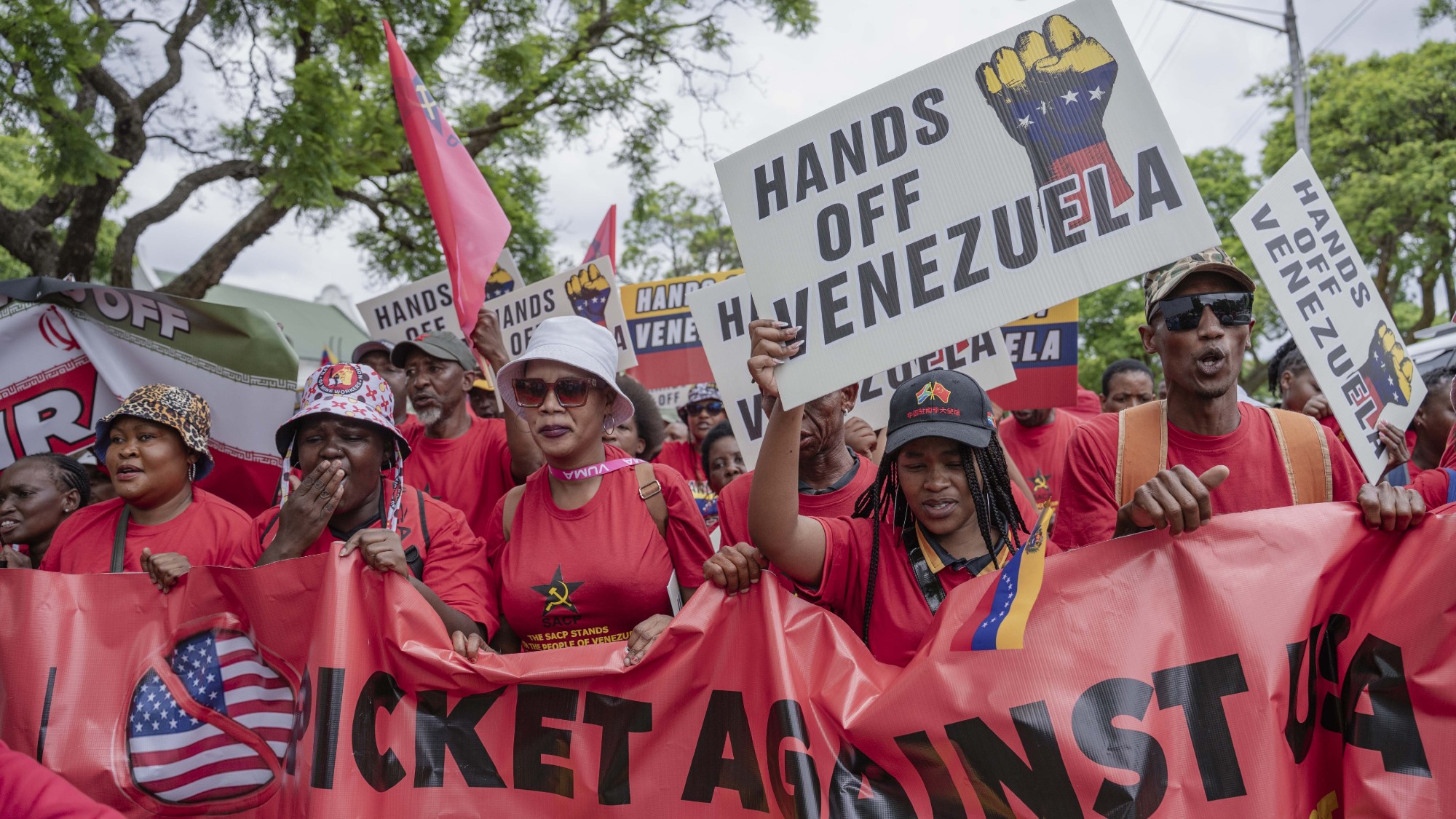 A running list of US interventions in Latin America and the Caribbean after World War II
A running list of US interventions in Latin America and the Caribbean after World War IIin depth Nicolás Maduro isn’t the first regional leader to be toppled directly or indirectly by the US
-
 What is the Donroe Doctrine?
What is the Donroe Doctrine?The Explainer Donald Trump has taken a 19th century US foreign policy and turbocharged it
-
 A running list of the US government figures Donald Trump has pardoned
A running list of the US government figures Donald Trump has pardonedin depth Clearing the slate for his favorite elected officials
-
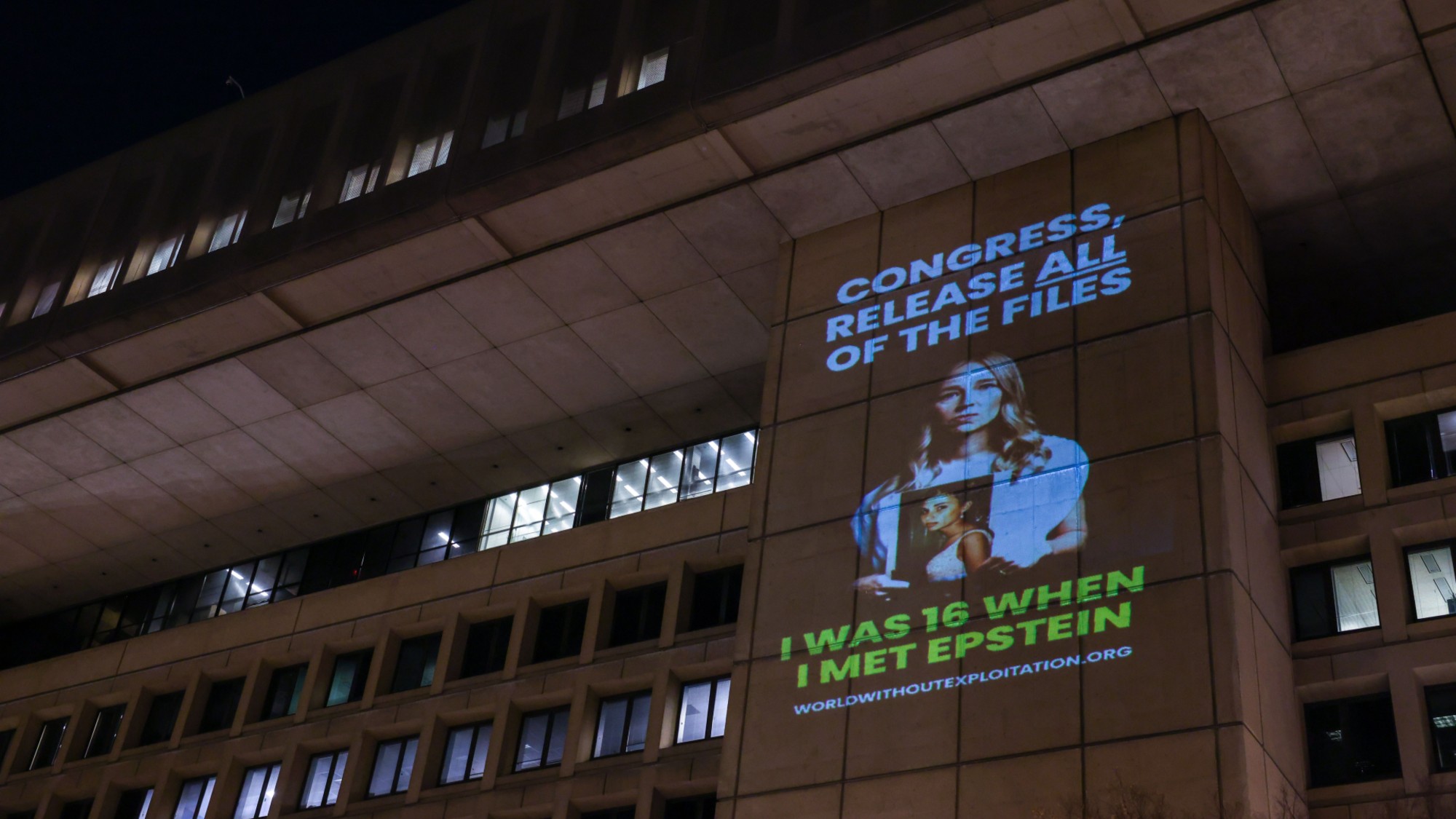 The powerful names in the Epstein emails
The powerful names in the Epstein emailsIn Depth People from a former Harvard president to a noted linguist were mentioned
